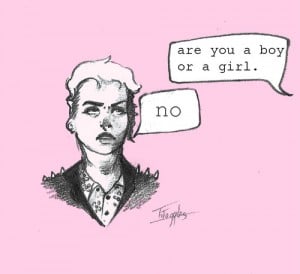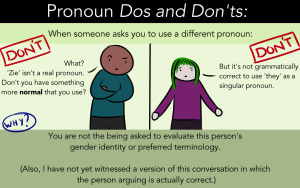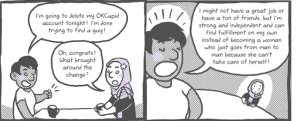
Two people – one wearing a head scarf and one without – walk out of a shopping mall, smiling at each other.
Dear supportive (non-Muslim) friends, family, and coworkers,
As the holy month of Ramadan falls upon us again, in a time when Islamophobia is on the rise in the most subtle and overt of ways, we know that some of you are working hard to support your Muslim friends and colleagues.
We know that you mean well (or so we assume), but you may not always be having the impact you intend, so here are some Ramadan basics – do’s and don’t’s so that you can truly support those of us fasting during Ramadan!
Please note that this article is written with a ton of sarcasm and sass in hopes of bringing humor to these everyday occurrences and not to vilify anyone’s genuine efforts to support us.
I hope that this article makes you laugh while also encouraging you to think more critically about how you operate in solidarity with Muslims, particularly during the month of Ramadan.
1. ‘So What Is the Significance of Ramadan?’
Ramadan is the holiest month of the Islamic calendar, a time for spiritual connection and engaging more deeply with faith and spirituality through personal reflection, additional prayer, fasting from food and drink between sunrise and sunset, reading of the Qur’an, and increased charity, to name a few.
The actual significance of this month and how one engages with it will vary person to person, as it should – because experiences of faith and spirituality are intensely individualized, even if we engage in religious practices shared by nearly 1.6 billion Muslims around the world.
This variation in practice depends on religious sect, cultural background, geographic region, familial norms, and/or personal preference – and this is by no means an exhaustive list.
If you ask an individual (with whom you have some sort of meaningful relationship) the significance of Ramadan to them, then you’re doing great!
However, if you are asking and expecting a dissertation-level response – or even a response that can be provided by a quick Google search – please remember that not every Muslim knows all the rules of Islam or has answers to your questions about Ramadan.
And they shouldn’t have to.
It’s unfair and can be burdensome to expect any one person to educate you. It can also feel incredibly invalidating and/or painful when a Muslim person doesn’t know the answers to questions about Islam and/or Ramadan – because the questioning sets the expectation that the person should know just because they are Muslim, and that not knowing means the person is not “Muslim enough.”
To begin educating yourself and doing your own research, check out these articles on Vox, The Guardian, FaithStreet, NBC News, and Salon for some great starter resources!
2. ‘You Can’t Eat or Drink All Day? Not Even Water?’
No eating or drinking. No, not even water.
Please, spare us the reaction of extreme shock and disbelief.
When fasting during Ramadan, Muslims don’t eat or drink from sunrise to sundown. Yes, this includes water.
While this may come as a surprise to you, it can be othering for us to experience your reaction of shock and disbelief. It implicitly communicates that you perceive our practice as a deviation from some norm (probably Christian hegemony).
Islam is a religion of 1.57 billion followers, many of whom fast during Ramadan, so this practice is pretty normal for approximately a quarter of the world’s population.
Take in the new information, but try not to dramatize this norm of ours. This is our religious/spiritual practice, not asceticism nor exceptionalism.
Though you may be trying to convey admiration or awe, it can be awkward when we’re simply practicing our religion.
Learn more about Christian hegemony here.
3. ‘Why Aren’t You Fasting?’
This is actually a pretty invasive question.
There are actually a number of reasons Muslims may not be fasting. Some may be premised in the faith tradition, and others may be entirely personal. Either way, an individual’s reasoning for not fasting is not for public consumption unless they choose to share that information.
If you ask someone if they are or aren’t fasting, let them respond – and don’t probe further unless they offer additional information. It can seem judgmental of their religious practice (or lack thereof) if they’re simply choosing not to fast. In addition, you can create awkward situations for both that person and yourself.
One of those awkward situations is when someone discloses that they’re on their period and that’s why they’re not fasting. Many of us don’t want to share our menstrual cycles with you – and many of you probably weren’t looking to find that out, either.
Other reasons may include medical or health conditions – whether formally diagnosed or not, illness, pregnancy, traveling, or age. This link has some examples of exemption from fasting within Islam, but these beliefs vary according to sect and individual practice.
(Please note that the link describes pregnancy and menstruation as being of a woman’s experience, but we know that folks of many and all gender identities and expressions experience pregnancy and menstruation.)
4. ‘Oh No, I’m Eating/Drinking – Let Me Hide My Food/Drink!’
*sigh*
Really, it’s okay.
Just because we’re fasting doesn’t mean we no longer understand how to engage with food/drink or that we have no discipline. So, no, we won’t tackle you even when you’re eating something delicious.
Don’t worry about eating or drinking in front of us, and don’t go to extreme lengths to avoid it. Consideration is appreciated, but part of the fast is the discipline of our abstinence.
Remember that fasting is not solely about abstaining from food and drink, but is more so about reflection, prayer, and connection with God. Hunger and thirst are regular reminders of being in a state of fasting, which serves to remind us to reflect and engage spiritually. The experience of fasting is also meant to remind us of how many in our world experience hunger every day, which in turn encourages us to give charity.
I recommend asking your Muslim friend or colleague what they prefer. Some will appreciate not being around you while you eat, whereas I actually feel less hungry when others around me are eating. Weird, I know, but true. In fact, I used to always watch cooking shows while fasting when I was growing up because it helped me feel less hungry.
The point is: Different people have different preferences. We are not a monolith.
5. ‘I’ve Fasted Before – I Know What That’s Like!’
Um, do you?
Fasting is a part of many faith traditions, and it varies in its practice and purpose.
Fasting during Ramadan is unique. Please do not equate it to other fasts.
Feel free to relate in, but don’t equate experiences. Instead, ask thoughtful, open-ended questions about what fasting/Ramadan means to the person.
6. ‘You Must Lose a Ton of Weight!’
Don’t bring up weight loss.
Fasting during Ramadan is a faith practice and spiritual experience, not about weight management. In addition, twisting it to be about weight supports a culture of thinspiration and fatphobia that is harmful and destructive, especially if you don’t know an individual’s history.
For Muslims with eating disorders, Ramadan can be very triggering. Read more about that here. And learn more about thin privilege here.
This comment once again reduces fasting to being an experience solely around abstaining from food and drink instead of seeing it as a time for personal reflection through this abstinence.
So let’s focus on the true purpose, shall we?
7. ‘How Can I Support a Fasting Person?’
Great question.
Fasting is an individual experience. Ask a specific person if they need or want anything from you and how can you support them. The answer won’t be the same across the board.
Some things to keep in mind include the following:
We may be tired and/or cranky (even hangry) from lack of sleep, food, and water. Try not to take it personally. But do ask how you can support!
If you’re a manager or supervisor, chat with your employees about flexible work hours that may be conducive to their altered eating and sleeping schedules, such as work-from-home days or coming in later so that they can get extra rest in the morning. Be open to the possibility of an employee napping in their office during a lunch hour – it can really help us get through the day!
Be conscientious of how much physical energy is required for an activity or outing you may propose, the time of day in which meetings or events may fall, and the settings in which you are doing them.
For instance, Ramadan may not be the best time for moving office furniture or for a work happy hour at a bar. Maybe someone else can do physical lifting or moving of items because a fasting person may be low on energy. Evening events may be challenging if they overlap with the time to break fast and/or pray.
Because people who fast during Ramadan may also pray during the five allotted times per day, let your staff know which spaces (such as a conference room) can be used for prayer.
And if you see a colleague washing more than just their hands in the bathroom, leave them be and try not to stare (because staring at us washing is even weirder than us trying to lift our feet up to a public bathroom sink). If you have questions, consult Google – or this link.
Check in (with Google or people) around when Eid-ul-Fitr may fall to ensure that important work meetings or events are not scheduled at the same time, especially if your colleagues/employees will take time off.
If the work meetings/events are inflexible, chat with your employee about how they can still participate (sending agenda items or thoughts beforehand) or receive information and updates thereafter.
Don’t judge us for still ordering lunch on the office or taking cookies from the break room – we can eat it later! But always, ask the fasting person what they prefer so that you are sure you’re actually being supportive and inclusive.
8. ‘Happy Ramadan!’
Thanks. Sort of.
Ramadan is a holy month we observe through fasting and prayer, and Eid-ul-Fitr is the holiday we celebrate. Observing and celebrating are quite distinct and deserve distinguished greetings.
Ramadan can be paralleled with Lent or Yom Kippur, and you don’t really hear folks wishing people a Happy Lent or Happy Yom Kippur.
The greetings Muslims use are “Ramadan Mubarak” and/or “Ramadan Kareem,” which again may vary according to language, region, and sect, amongst other factors. These roughly translate to wishing someone a Blessed Ramadan or Generous Ramadan, respectively.
Many articles encourage non-Muslims to use the aforementioned greetings to wish Muslims a blessed Ramadan. I think that this warrants a bit more thoughtfulness before engaging with this language in order to avoid cultural/religious appropriation.
I recommend examining your intentions before saying these words.
If this is a way for you to show Muslims you’re “down” and knowledgeable, then remember that this isn’t a competition or contest. If it’s to show others in your Facebook feed how much you know about Islam, then perhaps you can instead repost articles that share knowledge about Islam and Ramadan – like this one!
If you have a meaningful relationship with a Muslim person, then sharing this greeting may be more appropriate. Nonetheless, I still even encourage asking what your Muslim friend (or colleague) prefers.
On a personal note, one of my friends asked if there were wishes I’d prefer to hear – or not hear – from a non-Muslim person. I let her know what the greeting was, and then shared that I prefer to simply be asked how my Ramadan is going for me.
Alternatively, you can wish someone a blessed Ramadan in your own words; a former professor once wished me a “peaceful Ramadan,” which felt authentic and heartfelt.
9. ‘I’ll Fast in Solidarity with You!’
There’s a difference between appreciation and appropriation.
It may be with good intention that you wish to “give something up” in solidarity, but Ramadan is not the same as Lent, nor is it a New Year’s Resolution. To ensure you’re avoiding cultural/religious appropriation, commit to learning about Islam and Ramadan intentionally and respectfully.
If a Muslim friend or colleague invites you to fast with them, chances are that you’re not co-opting a religious practice that isn’t your own, but instead are sharing in an experience with someone with whom you have a meaningful relationship and connection.
Continue to educate yourself around cultural appropriation, why it’s harmful, and how to avoid it – and then apply these principles to religious and spiritual practices that are not your own.
You can start by reading this Everyday Feminism article and this Daily Dot article!
***
Ramadan is a month of reflection and humility, and it’s a time to embody these characteristics, within the Muslim community and beyond. Operating in solidarity with Muslims is not a simple or easy task, especially with the violent Islamophobic rhetoric espoused within mainstream media and by leading politicians.
So often, we highlight the importance of recognizing impact regardless of intent; Islam teaches that actions are judged by intention (The Hadith, Bukhari). While we should absolutely consider our impact irrespective of our intent, we can also draw from this Islamic teaching that our intentions still hold weight in the judgment of our character.
Perhaps what we all can practice during Ramadan, Muslim or not, is a more complex idea of intent, one that critically and consistently examines our motivations.
Who do we intend to serve with our actions? Have we learned what we need to know before we act? If not, then we need to figure out who we are actually serving, and what benefits we ourselves gain from our own actions.
I hope that we will all flex our critical lenses in reflecting on our intentions as well as our actions in order to best support Muslims during the month of Ramadan and beyond.
Special thanks to Dee Mandiyan for their help with this article!
[do_widget id=’text-101′]
Selima Jumarali (she/hers/herself) is a lover, educator and activist. She is committed to centering queer and trans communities of color in justice work, particularly within the fields of psychology and higher education, and is passionate about creating and furthering radical, revolutionary love. Her academic background is in psychology/psychobiology and higher education administration/student affairs. Selima currently serves as Associate Director of the NYU Center for Multicultural Education and Programs and as Adjunct Faculty in the NYU Silver School of Social Work. Originally from Queens, NY, and raised in South Florida, she lives in Long Island with some of her big brown family. You can follow her on Facebook or Twitter @SelimaJumarali.
Search our 3000+ articles!
Read our articles about:
Our online racial justice training
Used by hundreds of universities, non-profits, and businesses.
Click to learn more




















